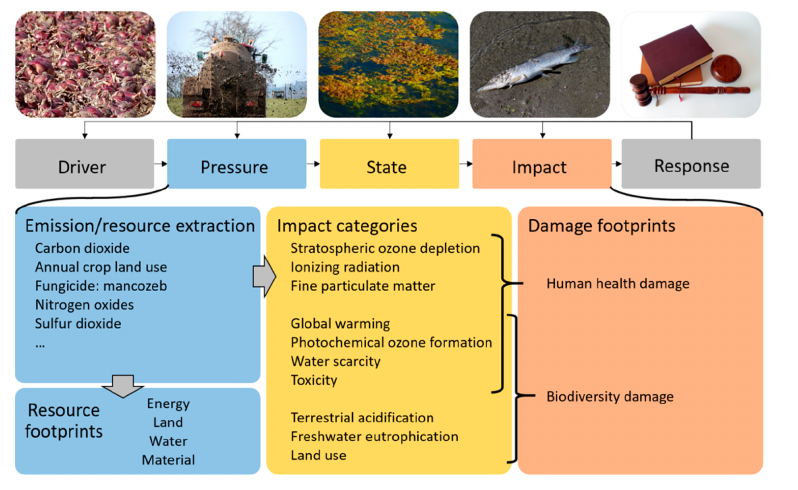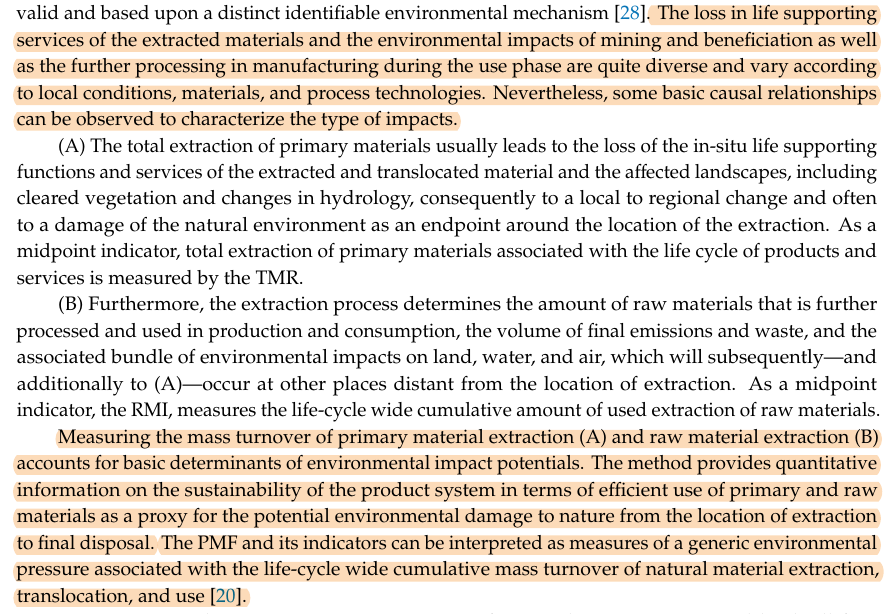
A few days ago @MaxCRoser posted the following tweet, dismissing the aggregate material footprint (MF) as being a "horrible" indicator, which shouldn't be used to report env. impacts. Here is a thread on why I think he is wrong & the MF important. 1/9
https://twitter.com/MaxCRoser/status/1356697165960261634
To make his case, he refers to this paper (…ofeconomicstructures.springeropen.com/articles/10.11…) & points to a ~ equal increase in coal & decrease in clay & sand use in the EU. Thus, he says, MF is a bad indicator for env. impact, bc as an aggregate it ignores these changes & assigns equal weight to them.2/9
Clearly, solely using MF as indicator for complex env. impacts has serious limitations, along these lines. But instead of a differentiated treatment, Roser fully discards MF. This is dangerous, given its demonstrated usefulness in indicating aggregate environmental pressures. 3/9
When we look at the data, we can see that MF is in fact a good proxy for aggregate env. pressures, simply bc all material extraction has *some* impact: MF is highly correlated with other env. indicators such as CO2 emissions & ecological footprint (nature.com/articles/s4189…) 4/9
As Krausmann et al. state (doi.org/10.1146/annure…), material use (here domestic) as a quite simple indicator also correlates well with more complex ones such as environmentally-weighted material use, which accounts for different impacts of the material categories. 5/9
Steinmann et al. (pubs.acs.org/doi/10.1021/ac…) too state: "resource footprints accounted for >90% of the variation in the damage footprints. [...] Our results indicate that relatively simple resource footprints are highly representative of damage to human health and biodiversity."6/9
Finally, Voet et al. (onlinelibrary.wiley.com/doi/abs/10.116…) find "if we compare environmental impact with [Domestic Material Consumption], we can conclude that the contribution to the environmental pressure & the contribution to the DMC is not so different for these [resource] categories".7/9
Thus, MF captures important connections between extractive activity & env. pressures quite well on an aggregate level, in a fairly simple way. So, instead of fully rejecting MF, it should simply be complemented by other indicators & differences between materials considered. 8/9
Roser provides no alternative to MF. But strangely & incoherently, he doesn't also reject the key role of GDP growth (another "terrible" aggregate indicator) within the SDGs (link.springer.com/article/10.100…), despite its clear association with env. impacts (iopscience.iop.org/article/10.108…)./end
Further resources on this debate can be found here:
https://twitter.com/AsjadNaqvi/status/1356717920068505607
This is also an interesting paper: doi.org/10.1186/s13705…, finding that MF has some usefulness in assessing impacts. This here is also relevant: 
https://twitter.com/kst_stadler/status/1357965677055868929

To clarify some terminology, pressures & impacts aren't the same, but as I have tried to show, they are connected (1st screenshot: doi.org/10.1021/acs.es…). See also 2nd screenshot (PMF=Product MF): mdpi.com/2079-9276/8/2/… 



There is also a blog version of this argument online now: degrowth.org/2021/02/06/agg…
• • •
Missing some Tweet in this thread? You can try to
force a refresh


